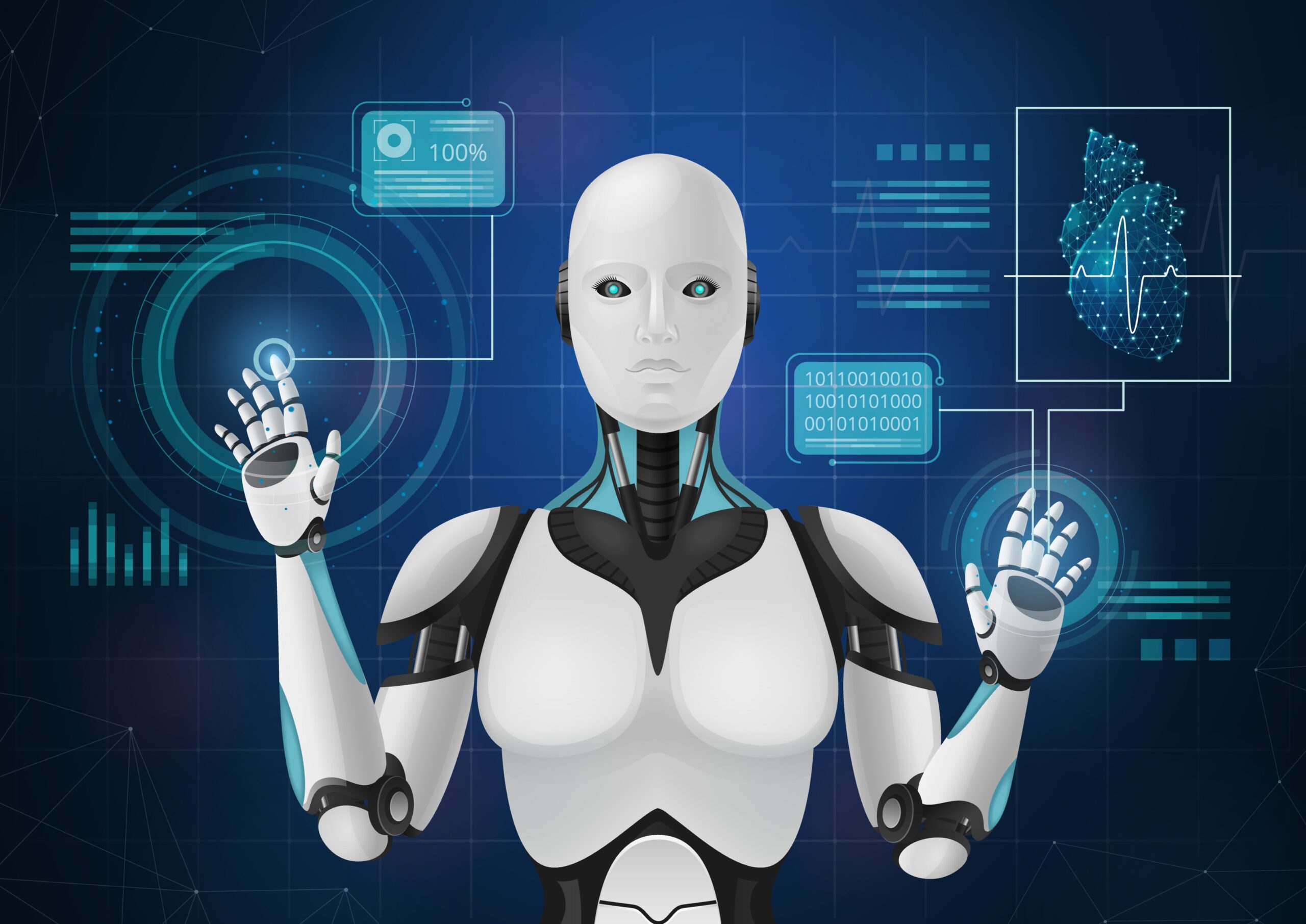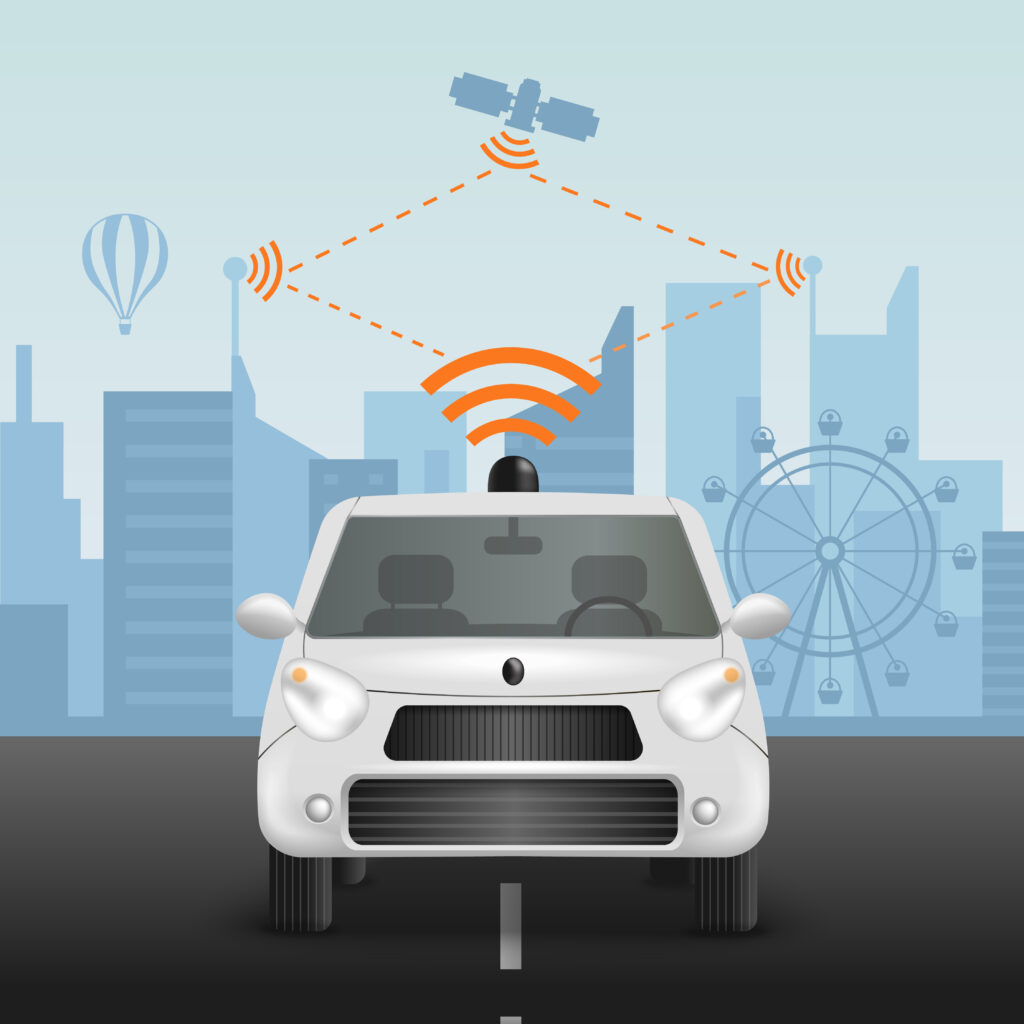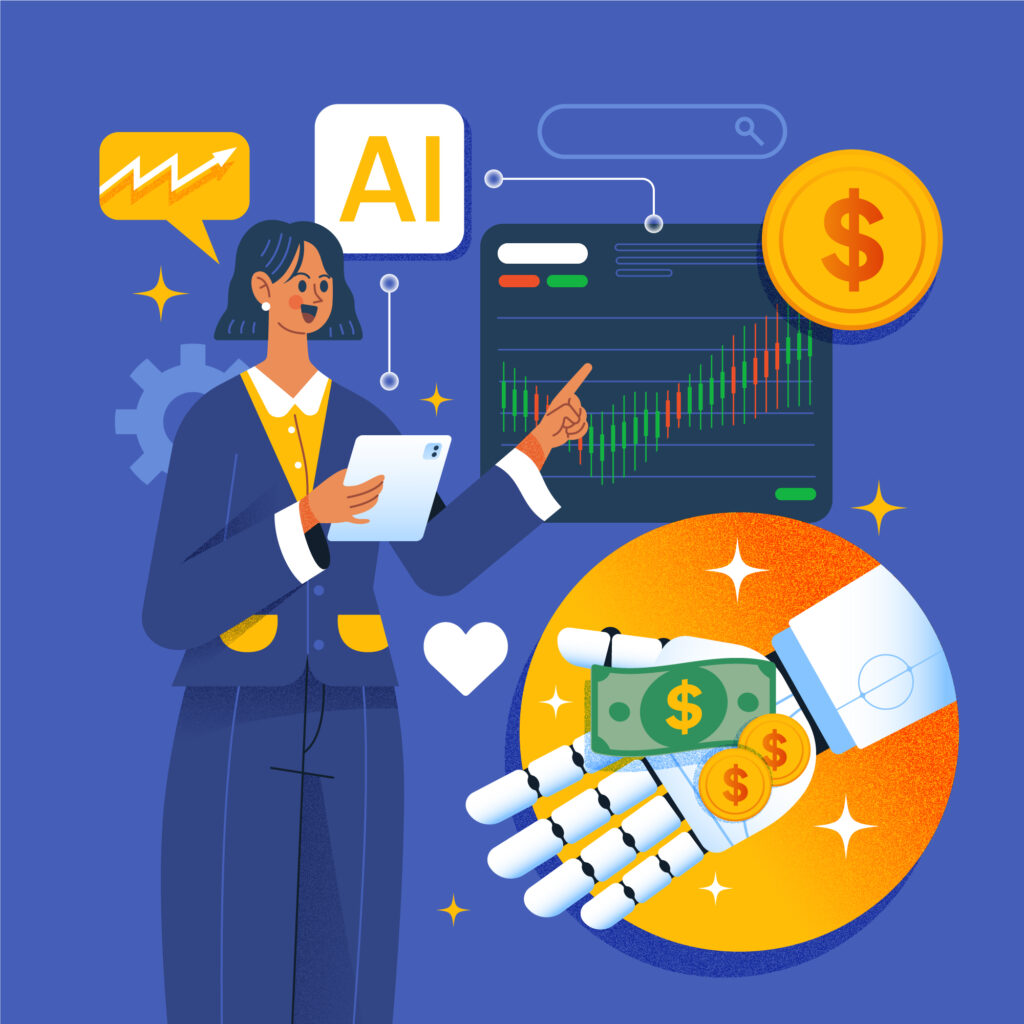The integration of Artificial Intelligence (AI) technology in healthcare is nothing short of a revolution. AI has rapidly evolved to become a vital tool in transforming how we diagnose and treat medical conditions. In this comprehensive blog, we will delve into the myriad ways in which AI is making waves in healthcare, improving patient outcomes, and enhancing the overall quality of healthcare services.
AI’s Role in Revolutionizing Healthcare
AI’s emergence in healthcare is driven by its potential to offer numerous benefits that are reshaping the industry:
1. Efficient Diagnosis
One of the primary and most transformative applications of AI in healthcare is in diagnostics. AI-powered algorithms can analyze medical images, such as X-rays, CT scans, and MRIs, with unparalleled speed and precision. This translates to faster and more accurate diagnoses, enabling healthcare professionals to initiate treatment promptly.
2. Personalized Treatment Plans
AI has the capacity to process vast amounts of patient data and customize treatment plans for individuals. By considering a patient’s medical history, genetic makeup, and even lifestyle factors, AI can recommend personalized treatment options that are more likely to be effective. This level of personalization has the potential to significantly improve patient outcomes.
3. Predictive Analytics
AI-driven algorithms can predict disease outbreaks and patient admission rates, enabling hospitals and healthcare systems to allocate resources more efficiently. This proactive approach enhances patient care and reduces the strain on healthcare facilities.
4. Drug Discovery
Traditional drug discovery is a time-consuming and expensive process. AI, however, can accelerate drug discovery by analyzing biological data to identify potential drug candidates and predict their effectiveness. This not only expedites drug development but also reduces costs significantly.
5. Telemedicine
The advent of telemedicine has been accelerated by AI. Virtual consultations powered by AI-driven chatbots and virtual assistants allow patients to receive medical advice and even prescriptions from the comfort of their homes, vastly improving access to healthcare services.
Real-World Applications of AI in Healthcare
Let’s delve deeper into some real-world applications of AI in healthcare that are transforming the landscape:
1. Radiology and Imaging
AI has made substantial progress in image analysis. Radiologists now use AI algorithms to assist in the detection of abnormalities in medical images, such as identifying tumors or fractures. This not only reduces the likelihood of human error but also expedites the reporting process. Furthermore, AI can track changes in a patient’s images over time, aiding in the early detection of diseases like cancer.
2. Chronic Disease Management
Managing chronic diseases often necessitates continuous monitoring. AI-powered wearable devices can track a patient’s vital signs and activity levels, providing valuable data to healthcare providers. This data can be used to fine-tune treatment plans and provide timely interventions, ultimately enhancing the quality of life for patients with chronic conditions.
3. Electronic Health Records (EHRs)
Electronic health records are a treasure trove of patient information. AI can analyze these records to identify patterns and trends that may not be immediately apparent to healthcare professionals. This can assist in early disease detection and help doctors make more informed decisions about treatment.
4. Surgery and Robotics
AI is also leaving its mark in the operating room. Robotic surgical systems, driven by AI, enable more precise and minimally invasive procedures. Surgeons can control robotic arms with incredible precision, reducing the risk of complications and shortening recovery times.
5. Drug Prescription and Adherence
AI-powered tools can assist healthcare providers in prescribing medications more accurately, taking into account a patient’s medical history and potential drug interactions. Additionally, AI can remind patients to take their medications on time, improving adherence to treatment plans.
Challenges and Concerns
While AI holds immense promise in healthcare, it’s essential to address the challenges and concerns that come with its integration:
1. Data Privacy and Security
The healthcare industry deals with sensitive patient data, making it a prime target for cyberattacks. Protecting patient privacy and ensuring data security are paramount concerns when implementing AI systems. Robust security measures and compliance with data protection regulations are essential.
2. Bias in Algorithms
AI algorithms are only as good as the data they’re trained on. If the data used to train these algorithms is biased, it can lead to discriminatory or inaccurate outcomes. Ensuring data quality and fairness in AI systems is an ongoing challenge that requires constant vigilance.
3. Regulatory Hurdles
The healthcare industry is heavily regulated, and introducing AI systems often involves navigating complex regulatory frameworks. Ensuring that AI solutions comply with these regulations can be a lengthy and costly process. However, regulatory bodies are gradually adapting to accommodate AI innovations.
4. Ethical Dilemmas
AI can raise ethical questions, particularly in areas like end-of-life care and decision-making. Determining the ethical boundaries of AI in healthcare is an ongoing discussion that involves healthcare professionals, policymakers, and ethicists.
The Promising Future of Healthcare with AI
Despite the challenges, the future of healthcare with AI looks incredibly promising:
1. Enhanced Diagnostics
AI algorithms will continue to improve in accuracy and speed, leading to earlier and more precise diagnosis of diseases. This can significantly increase the chances of successful treatment and reduce the need for invasive and costly procedures.
2. Improved Treatment Outcomes
As AI-driven treatment plans become more common, patients can expect more tailored and effective treatments. This can result in shorter hospital stays, reduced side effects, and improved overall well-being. AI will enable doctors to choose the most suitable treatments based on a patient’s unique profile, optimizing results.
3. Cost Reduction
AI has the potential to significantly reduce healthcare costs by streamlining administrative tasks, reducing the need for redundant tests, and optimizing resource allocation. These efficiencies can lead to cost savings for both healthcare providers and patients, making healthcare more affordable and accessible.
4. Remote Monitoring
The use of AI in remote patient monitoring will continue to expand, allowing individuals with chronic conditions to receive continuous care without the need for frequent hospital visits. This not only improves the quality of life for patients but also reduces the strain on healthcare facilities.
5. Global Health
AI can help bridge the healthcare gap in underserved regions by providing access to diagnostic and treatment recommendations through telemedicine and AI-driven applications. This has the potential to significantly improve global health outcomes and reduce health disparities.
Conclusion
In conclusion, AI is ushering in a new era of healthcare where diagnosis and treatment are more accurate, personalized, and efficient than ever before. From improving diagnostics through image analysis to revolutionizing surgery with robotics, AI is transforming every aspect of healthcare. However, it’s essential to address the challenges of data privacy, bias, and ethics as we harness the full potential of AI in healthcare.
As we look ahead, the healthcare industry will continue to embrace AI, ultimately resulting in better patient outcomes, reduced costs, and improved access to healthcare services. The integration of AI in healthcare is not a mere trend but a fundamental shift that has the power to revolutionize the way we approach healthcare delivery.
If you are interested in exploring the impact of AI in another industry, you can check out our blog on AI-Powered Personalization: The eCommerce Revolution to see how AI is changing the landscape of online shopping.
In conclusion, AI is poised to be a transformative force in healthcare, revolutionizing diagnosis and treatment. While challenges exist, the potential benefits, including more accurate diagnoses, personalized treatment plans, and improved patient outcomes, make it a powerful tool in the medical field. As AI continues to evolve and integrate further into healthcare systems, we can anticipate a future where healthcare is not only more effective but also more accessible and efficient.



